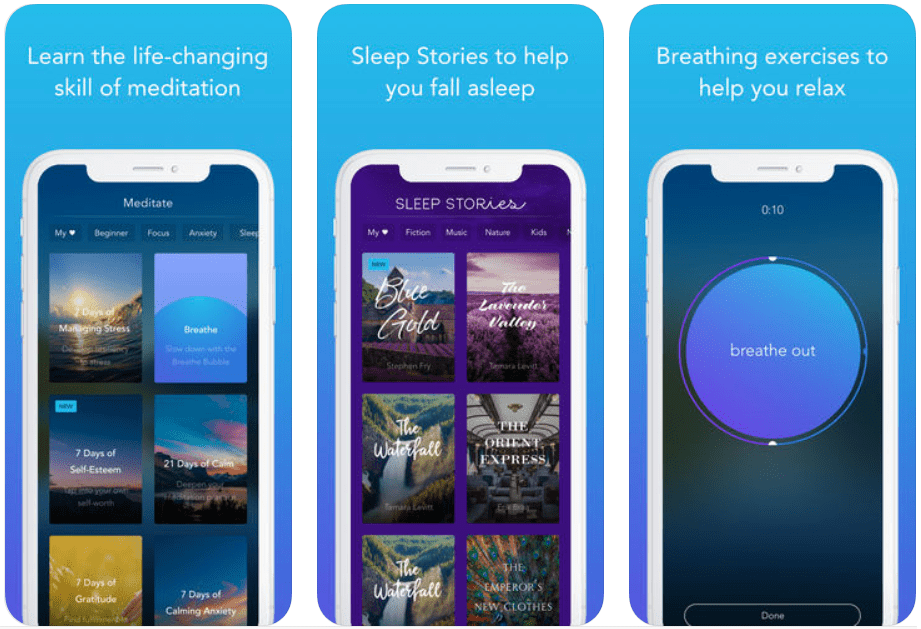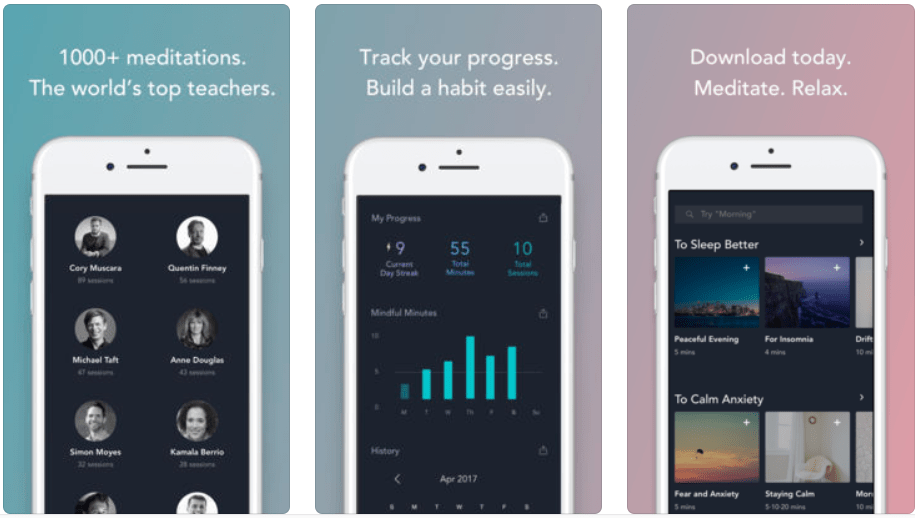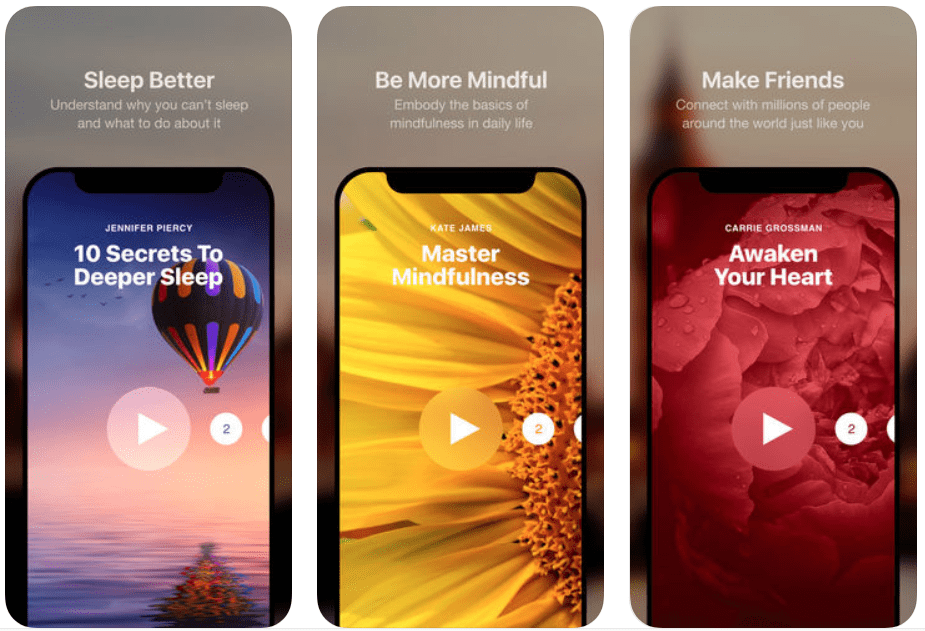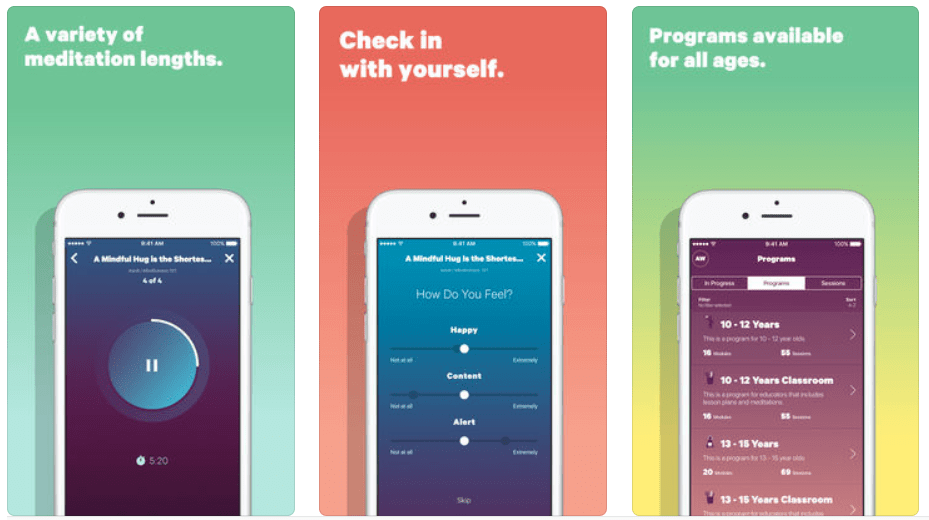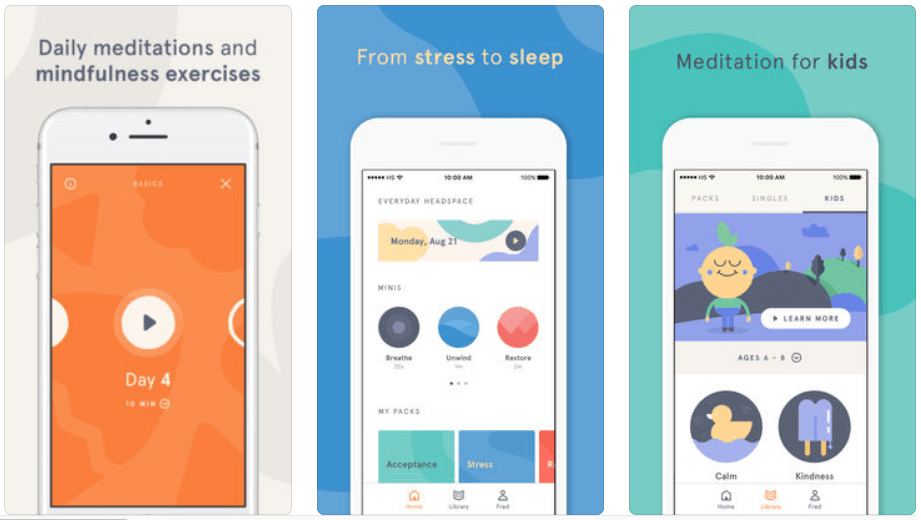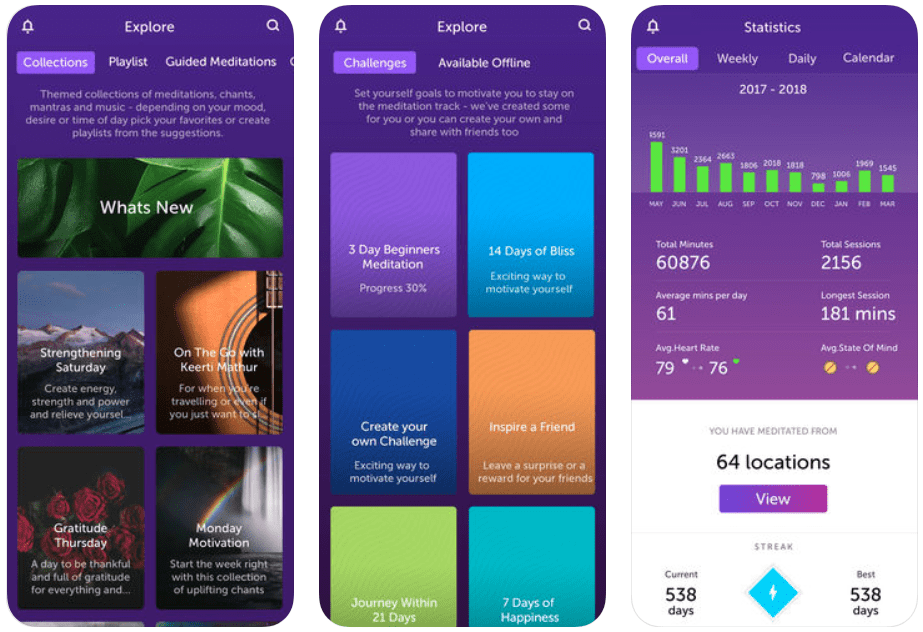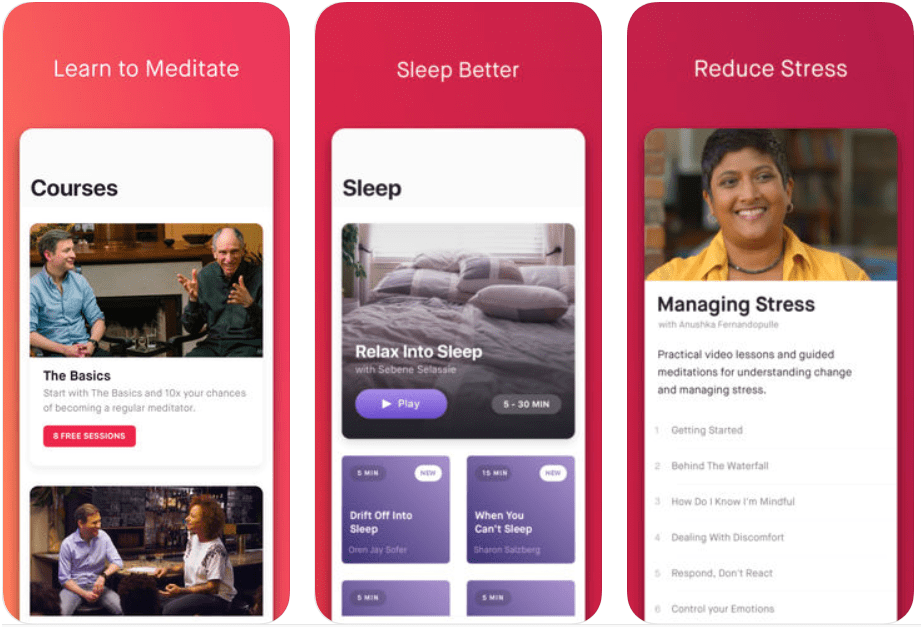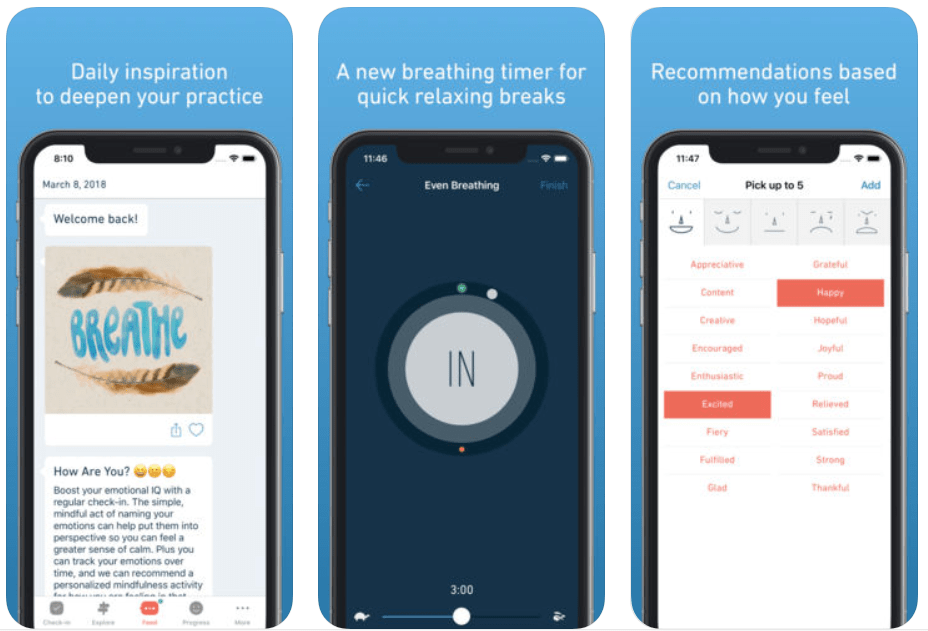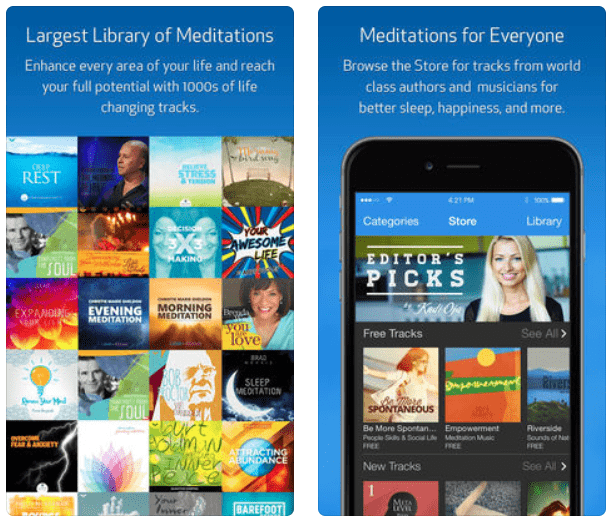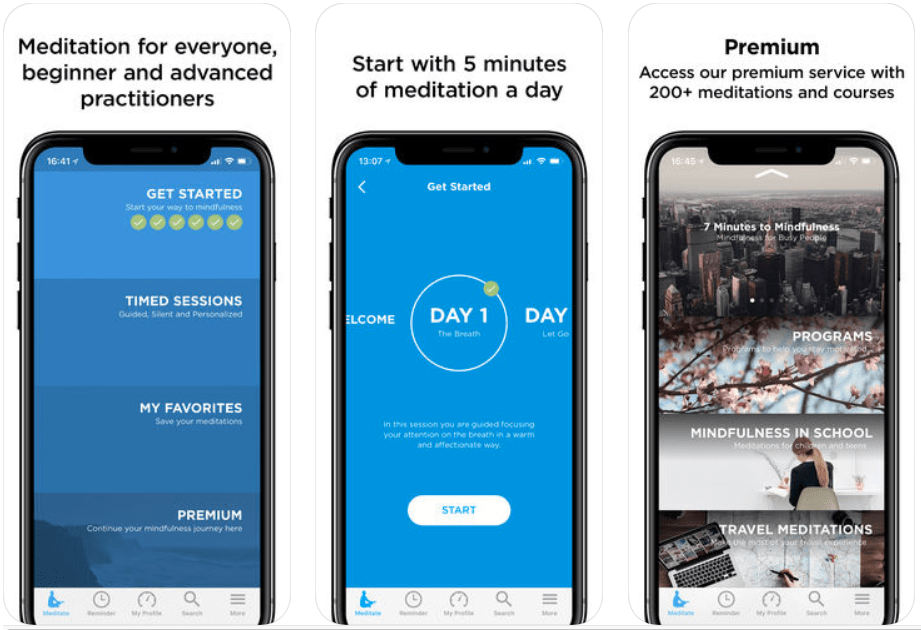Star vegas money online
Get quick answers from Star Vegas International Resort
Tuesday, September 11, 2018
Tuesday, August 28, 2018
គុកទួលស្លែង
គុកទួលស្លែងចែងយ៉ាងជាក់ច្បាស់**********ប្រវត្ដិសាស្រ្ដខែ្មរត្រូវចាំ
យួនធ្វើបាបខែ្មរទារុណកម្ម**********ជាច្រើនខែឆ្នាំស្លាប់ត្រៀបត្រា។
ឃាតករកាន់កាប់គឺណាំហុង****************ជាខែ្មរវៀតកុងបញ្ជាការ
សម្លាប់និស្សិតសាស្រ្ដាចារ្យ**********បញ្ញវន្ដសិស្សារាប់លាននាក់។

សព្វថៃ្ងទមិឡយួនខំព្យាយាម*******លុបបំបាត់ឈាមដែលប្រឡាក់
បំភ័ន្ដកូនខែ្មរឲ្យជឿជាក់***********ថាយួនស្មោះស័្មគ្រសង្រ្គោះខែ្មរ។
ឲ្យកូនចៅខែ្មរស្រែកអរគុណ**************ពូជអាខ្សែហ៊ុនអន់ជាងឆ្កែ
ថ្វាយបង្គំវាស្រែកឡែឡែ*************យួនយកដីស្រែអរគុណយួន៕
******
ដោយ ចិន្ដកវីខែ្មរ ថៃ្ងទី២១ ខែឧសភា ឆ្នាំ២០១៦
បំភ័ន្ដកូនខែ្មរឲ្យជឿជាក់***********ថាយួនស្មោះស័្មគ្រសង្រ្គោះខែ្មរ។
ឲ្យកូនចៅខែ្មរស្រែកអរគុណ**************ពូជអាខ្សែហ៊ុនអន់ជាងឆ្កែ
ថ្វាយបង្គំវាស្រែកឡែឡែ*************យួនយកដីស្រែអរគុណយួន៕
******
ដោយ ចិន្ដកវីខែ្មរ ថៃ្ងទី២១ ខែឧសភា ឆ្នាំ២០១៦
10 Recommended Meditation for Sleep Apps to Drastically Improve Sleep Marnix Buijs
The benefits of meditation include improving focus and lowering stress levels. Meditation has so many benefits that it’s grown to become a popular practice that can greatly improve your health and wellness.
If you’re looking for the perfect app to help you meditate with the specific purpose to improve your sleep, you’ve come to the right article!
In this post, we’ll look into the basic criteria you should be using to review different meditation for sleep apps. I’ll also recommend 10 meditation for sleep apps to help improve your sleep.
Requirements of the meditation for sleep app
Before you search for every meditation for sleep app out there. You first have to look at the necessary requirements the app has to fulfill.
- Accessibility: What is the price? And is the app available for your device? Can you access it without Wi-Fi to avoid distraction?
- Meditation basics: Does it cover the basic principles of meditation?
“Meditation is a precise technique for resting the mind and attaining a state of consciousness that is totally different from the normal waking state. It is the means for fathoming all the levels of ourselves and finally experiencing the center of consciousness within. Meditation is not a part of any religion; it is a science, which means that the process of meditation follows a particular order, has definite principles, and produces results that can be verified.” — Swami Rama[1] - Quality of sleep: Does it focus on improving your quality of sleep? Do you fall faster asleep?
10 Recommended meditation for sleep apps
These requirements will be covered in the following paragraphs for each individual meditation for sleep app. Besides the requirements, pros and cons will be listed too. And to top it off, there will be a 1-5 star rating.
1. Calm
Calm is a bit different than most meditation for sleep apps. Most apps use a structural manner to present their meditations and have a sequence to follow. With Calm, you can go about it in any way you want.
First, there are some (30+) basic white noise sounds which are all free to download. Then, you have a specific department dedicated to your focus (sleep in this case). What you will find there are stories; just simple relaxing stories that will talk you through a story.
After that comes the meditation menu which includes all the specific meditations you need. They have over 100+ meditations with options from beginner to relationships.
The fourth option in the app is music focused on a specific purpose which also includes sleep, 9 are free.
Last but not least, there are masterclasses available for premium members which are taught by experts in their areas, from Elizabeth Gilbert (author of Eat Pray Love) to Dr. Judson Brewer (World-Renowned addiction expert).
Requirements
- Accessibility: There’s a lot available for free. The app is available for Android, IOS, and desktop. Everything is downloadable for offline use.
- Meditation basics: There are multiple options for specific meditations all geared towards the goal of calming the mind. Listening to stories can work for some but may not be for everyone.
- Quality of sleep: There are specific sleep meditations and music (+white noise) which helps a lot of people.[2]
Pros:
- The app offers a lot of options, not only guided meditations but also stories, music, and masterclasses which brings the complete experience.
- There are a lot of free meditations available.
- Low price to pay for the premium version ($40/year).
Cons:
- Not knowing where to start because there’s a lot to experiment with (which could also be fun).
Rating: 4.9/5
2. Simple habit
The app has 3 different menus; on the go, series, and teachers.
There are free journeys available focused on learning to meditate, morning meditations, improving focus, finding happiness and sleep better (YES). There are precisely 23 meditations focused on sleeping better (and about 50 more with premium) plus on the go meditation for sleep of 5, 10 or 20 minutes.
The upgrade is expensive, from $100 per year.
Requirements
- Accessibility: There is a lot available for free. You can download the app on IOS & Android, and everything is downloadable for on the road.
- Meditation basics: The simple habit guided meditations are taught by professional teachers, some who were monks and scientists. Famous names include Matt Young and Catherine Cook-Cottone.
- Quality of sleep: There are specific meditations available for improving sleep. The rest of the meditations focus all on the same; calming the mind (which also makes it easier to fall asleep).
Pros
- Covers everything you need to practice mindfulness thoroughly.
- There are a lot of free meditations available.
- With Simple Habit, you can meditate everywhere.
- Their slogan is the best meditation app for busy people, and they really live up to it by making it easy to match your mood or situation to a specific meditation practice.
Cons
- The premium version is expensive which means you’ll have to listen the same over and over if you keep using the app for daily meditation for sleep.
Rating: 4.8/5
3. Insight Timer
Insight Timer is much more than just a meditation app, it’s a whole community of teachers and meditators. When you open the app, you see immediately how many meditations people did on that day and how many people are meditating at the moment. You can even see it on the world map.
Besides that, there are meditations, timers, and courses available. And the best thing yet all meditations are free. You only pay for the 10-day courses of the best teachers. There are 10,000+ meditations, and there are a lot of meditations focused on sleeping better. There’s also a meditation for sleep course available in the app.
Requirements
- Accessibility: There are enough meditations for free to pick a different meditation every day for 10+ years, the premium version is $3 a month for offline use and higher quality audio. The courses cost $5 for single use or $20 for lifetime access, which is quite expensive. The app is available for Android and IOS.
- Meditation basics: There are focused meditations for specific purposes like having a peaceful sleep session. The courses are taught by real professionals, so those offer a lot of value. There’s even a 7-day introduction course to meditation to teach you all the basics of meditation.
- Quality of sleep: There are lots of meditations focused on increasing the quality of your sleep through deep sleep techniques, breathing techniques, and healing meditations.
Pros
- Insight Timer consists of the biggest meditation library of over 10,000+ meditations for FREE!
- The community part of Insight Timer gives an entirely new spin to the ‘usual’ meditation for sleep app.
Cons
- The valuable courses are costly.
Rating: 4.7/5
4. Smiling Mind
The unique thing about Smiling Mind is that it’s all free and focused on specific age groups. They even offer meditation programs for 3-year-olds! It is a 100% non-profit organization that wants to make mindfulness available for everyone. Their goal is to have a preventive solution to a possible mental health condition.
They have programs for sports, commuting, workplace and more!
Requirements
- Accessibility: Everything is free, and their app can be downloaded on Android and IOS. You can also download every meditation for offline use.
- Meditation basics: All the meditations are based off scientific research so you’ll see results very quickly.
- Quality of sleep: They do not have specific programs dedicated to improving sleep, but in most programs, some meditations focus on improving sleep.
Pros
- Everything is free, literally everything.
- The app is not only for adults but even for 3-year-olds. They really try to cover as many people as possible so everyone can benefit from mindfulness.
- It has specific programs geared towards improving education (schooling) or work.
Cons
- None
Rating: 4.6/5
5. Headspace
Headspace is an app based on science with a lot of opportunities. It focuses on making it as simple as possible to do meditations. They have meditations for literally everything, from walking in the city to gardening.
A unique thing they have is their department dedicated to kids. They also have animations which some of them are free.
Requirements
- Accessibility: They don’t have free meditations focused on sleep and not a lot of free meditations at all which means you would have to upgrade immediately to really benefit. The premium feature is often discounted to about $50 per year which is doable. Headspace is available for both IOS and Android. You can download meditations for offline use.
- Meditation basics: Yes, it focuses on making the mind still and being entirely conscious. They also have a separate in-house team of researchers who researched a lot of the results and best practices.
- Quality of sleep: There are specific meditations focused on improving the quality of your sleep, from guided meditation for sleep to sounds and unguided meditations. They even have a meditation for sleep for kids as well.
Pros:
- Very short meditations (some of1 min).
- A wide variety of topics and 30 sessions specifically dedicated to sleep.
Cons:
- You have to pay for almost everything before you can listen to most of it, except for the first basics pack of 10 sessions of 5-10 min and some first tries for individual packages.
Rating: 4.5/5
6. Sattva
Sattva is an app based on the ancient Vedic teaching.[3] With this teaching in mind, you need a spiritual teacher with this specific knowledge. One of those spiritual teachers they acquired for the app is Gurudev Sri Sri Ravi Shankar.
The app doesn’t only focus on meditations but also chants and mantras. These are also good ways to clear the mind.
With its tracking system, you’ll know exactly how much you have meditated and from where. One thing they do differently than the other apps is that Sattva has a one-time payment (costly) for the premium version.
Requirements
- Accessibility: A lot of the meditations, chants, and mantras are free. It looks like you can get access to a community and other meditations, chants, and mantras for a one-time payment of $249.99 (expensive). The app is available for Android and IOS. Everything is downloadable for offline use.
- Meditation basics: The meditations, chants and mantras in this app all have their roots in the ancient Vedic religion. It is taught by multiple spiritual teachers who have been practicing these methods for years.
- Quality of sleep: It seems like there is at least 1 meditation for sleep and multiple on deep relaxation which could also be used as a meditation for sleep.
Pros:
- There’s a lot available for free
- There’s a wide variety of methods of meditation available such as guided meditation for sleep, self-taught meditation with a timer, chants, mantras, and music.
- Themed collections are available for specific days, like Wellness Wednesday, Strengthening Saturday and Gratitude Thursday.
Cons:
- The premium version is costly (but you don’t necessarily need it)
Rating: 4.3/5
7. 10% Happier
10% happier is not only an app, but it is also a story. An idea expressed in multiple books, a podcast, and a blog.
Dan Harris is the mind behind the brand, he wrote the book 10% happier which became a #1 New York Times bestseller.
The app is made for ‘Fidgety Skeptics’ as they state on their website. In the app, you will find meditations by spiritual teachers and practitioners all over the world.
From Joseph Goldstein to Sebene Selassie. You can try the app for free for 7 days and after that upgrade to premium or only have access to the limited free content.
Requirements
- Accessibility: The app doesn’t only have 100+ meditations but also 20+ courses available. About 20% is free, and for a price of $99.99 per year, you can get access to everything else. The app is available for Android and IOS. It doesn’t look like you can download meditations or courses for offline use.
- Meditation basics: The meditations and courses in the app are taught by people who have a lot of experience in the meditation industry themselves. For example, Joseph Goldstein is one of the first American Vipassana teachers.
- Quality of sleep: There’s a specific category dedicated to sleep in the app which consists of 11 kinds of meditation for sleep of which 3 are free. They all focus on a different part of sleep, from relaxing into sleep to when you can’t sleep.
Pros
- A lot of work was put into the concept of 10% happier which not only makes it an app but a story/method of calming the mind which is taught by a lot of well-known teachers.
Cons
- If you really want something out of the app, you’ll have to buy the premium version which is pretty expensive.
Rating: 4.1/5
8. Stop, Breathe & Think
Stop, Breathe & Think is a very well structured app that has a unique feature: the check-in. This option allows you to express yourself and based on that expression it will recommend meditation sessions to you.
It has a lot of free meditations but even more premium ones for a price of $59.88 per year. 10% of that money goes to helping kids learn mindfulness practice, isn’t that lovely?
Their meditations are available in English and Spanish which is a nice differentiator of their competitors.
Requirements
- Accessibility: The app doesn’t have such an extensive library like Insight Timer, but it does have 100+ meditations available with about the half of that for free. You could upgrade to get access to more meditations for $59.88 while contributing to the knowledge of mindfulness for children. The app is available for Android, IOS, and even computer! It doesn’t seem like you can download the meditations for offline use.
- Meditation basics: The name of the app says it all, it’s all about taking a moment to focus the mind on the breath and thoughts. This way you’ll have a clear mind for the rest of the day.
- Quality of sleep: There’s a particular category dedicated to improving your sleep through meditation for sleep. There are in total 22 sessions of which 4 are free. They all focus on improving the quality of your sleep.
Pros
- It’s easy to have an overview of the app because it is well structured.
- If you buy premium, you not only do it for yourself but also for children who can benefit from the mindfulness practice.
Cons
- There are not a lot of meditations available at this date, let alone free meditations.
Rating: 4/5
9. Omvana
Omvana is the #1 app for meditation, focus, sleep and inspiration tracks in 30+ countries.
Instead of meditations, everything is called a track and can be put in the categories; guided meditation for sleep, music, poetry, brainwave entertainment, relaxation sounds and sleep-inducing tracks.
Instead of offering a premium version, you have to buy some of the tracks for prices between $0.99 and $7.99.
Requirements
- Accessibility: The app has 100+ free tracks available, and for different prices, you can buy different tracks depending on your preference. The app is available for Android, IOS, and desktop. Instead of the option to download the tracks for offline use, you have to download a track before you are able to use it at all. It’s sort of like with music.
- Meditation basics: There are a lot of tracks made by teachers like Gabrielle Bernstein, but there are also pure sounds from nature. It all focuses on one goal; calming the mind.
- Quality of sleep: As with all the meditation for sleep apps on this list, Omvana also includes a separate category dedicated to better sleep. This consists of 20 tracks of which 4 are free to use. From sleep hypnosis to lucid dreaming, it’s all possible here.
Pros
- Instead of buying an all-inclusive premium version, this app is the first app (besides Insight Timer which uses a combination) to let you choose exactly what you want to buy.
- Omvana is made by Mindvalley which has a massive community. If you like Omvana, you could become part of the Mindvalley community and get more out of it than just meditation for sleep.
Cons
- There’s a limited amount of meditations dedicated to sleep available.
- You have to download every track you want to listen to which can take up a lot of memory space of your phone.
Rating: 4/5
10. The Mindfulness App
The mindfulness app is a very well structured app. Everything is divided into different categories, and there’s also a category for sleep which consists of 10 sleep meditations (all premium) and 1 sleep course (also premium).
There are 11 regular meditations for free, you can unlock the rest for a yearly subscription of $59.99 or a monthly subscription of $9.99 per month.
Requirements
- Accessibility: There are not a lot of meditations for free, but if you unlock the premium version (for a doable price), you’ll have access to 200+ meditations. The app is available for Android and IOS. It doesn’t show an option to download meditations for on the road, but maybe that’s only a premium option.
- Meditation basics: There are programs available by Eckhart Tolle, Jon Kabat-Zinn, and Jack Kornfield. So yes, the basics of meditation are covered by these teachers.
- Quality of sleep: There are few sleep meditations, and they are not necessarily focused on enhancing deep sleep or falling to sleep quickly.
Pros
- The meditations that are available in this app are all taught by well-known teachers in the industry.
- They have specific programs focused on an outcome like becoming more focused. There’s not a particular order in which the meditations are supposed to be listened to, but they all have the same goal.
Cons
- There are almost no meditations available in the free version.
- There aren’t a lot of meditations focused towards sleep.
Star rating: 3.6/5
The bottom line
Meditation for sleep can indeed increase your chances of sleeping better. The only thing you need to figure out is the best resource to help you with it.
With all these 10 recommended meditation for sleep apps, you should be able to find the one that fits your needs most.
If you need help implementing meditation into your daily life, check out this article:
Featured photo credit: Unsplash via unsplash.com
Is Saturated Fat Bad for Your Health? (And How to Eat Healthy Fat)
Until few years ago, the term “fat” was a big curse in the fitness industry. Every single expert, trainer and fitness enthusiast suggested people who wanted to lose weight to stay away from it.
Anything that contained fat were urged to throw out of the diet. A fat-free version of almost everything was released in the market, making it a billion dollar industry.
But the million dollar question is, did that make people healthy and fit? The truthful answer would be NO!
In the urgency to get rid of fat, we forgot to distinguish good fat from bad fat.
Many studies have shown in the past that the bad fat present in meat, dairy products and high-calorie foods are harmful to the body and leads to heart diseases.[1]
But before we reach an obvious conclusion that all types of fat are bad and should be eliminated, let’s try and understand what is fat, the components, types and the effects.
TABLE OF CONTENTS
What exactly is fat?
Contrary to arguments and popular belief, fat is necessary for human body to survive. Fat is a nutrient and a source of energy. One gram of fat contains 9 calories, while one gram of protein and carbohydrate contain 4 calories each.
Fat, when in excess, is stored throughout the body for consumption during lean times, by converting it into glycogen. It also acts as a cushion to protect our internal organs, which will otherwise be prone to damage.
Dietary fats are irresistible because it makes the food tastier, improves the smell and flavor. In simple terms, fat makes any food item more sellable.
According to the US department of health, the maximum amount of fat consumption should be 30% of the total calorie intake. Any diet that includes 30% or less amount of fat is considered as a good diet.
But many items are loaded with huge amount of fat, which results in more fat consumption (sometimes, more than 40%) per day. This, combined with a sedentary lifestyle, results in heart diseases, obesity, and high cholesterol.
It is important to distinguish good fat from bad fat as good fat is necessary for healthy body functioning. Identify foods that are a source of good fat and include them in the diet and minimize those items that are loaded with bad fats.
For this, let’s understand different types of fats.
The different types of fat
Fats, in a broader sense, can be classified into saturated fat, trans-fat and unsaturated fat. The basic difference comes down to the molecular structure of fat.
Each molecule is combination of hydrogen and carbon. The ratio of hydrogen atoms to carbon atoms is the deciding factor of whether it is a saturated, unsaturated or trans-fat. Let’s see each of them in detail.
Saturated fat
Saturated fat is also known as “Solid fat” because of its molecular structure. These fats are solid at room temperature. The hydrogen atoms would be higher than the carbon atoms in saturated fats.
The molecules form regular shapes and form as clumps easily. These clumps possess a sticky nature and can easily stick to the arteries one after the other, making a person overweight or obese and prone to coronary heart disease.
Some of the foods that contain a good amount of saturated fat are red meats such as lamb, pork, fatty beef, beef fat, poultry with skin and dairy products such as butter, cheese, and any product that is made from whole-milk.
Furthermore, many fried and baked items such as French fries, cookies, cakes and oily foods contain high amount of saturated fat. Some of the oils such as coconut oil, cocoa butter and palm oil are also high on saturated fat.
The more a person consumes saturated fat, the higher would be the amount of cholesterol in his body.
Cholesterol is a free flowing fat, produced by the liver, which is essential for cell functioning and the building block for other vital components in the body. But excess cholesterol will hinder oxygen flow throughout the body and results in heart diseases.
Trans-fat
Trans-fat or hydrogenated fat is a chemically processed form of unsaturated fat. This type of fat is treated with additional amount of hydrogen. The main purpose of this fat is to act as a flavor-enriching component and offers no nutritional value.
Trans-fat increases the amount of bad cholesterol in the body and causes a myriad of heart diseases. It raises the LDL (Low-density lipoprotein) cholesterol which puts your heart at risk.[2] The LDL cholesterol level should always be less than 100 mg/dL. Anything above 130 mg/dL is considered as high and harmful.
Excess consumption of trans-fat can cause the LDL cholesterol to rise and affect the healthy functioning of heart. This is a fat that one should try and minimize as much as possible.
Some of the foods that are high in trans-fat are processed foods, partially hydrogenated oils, cookies, chips, crackers etc.
Unsaturated Fat
Now, as you might have rightly guessed, unsaturated fats are those with a lower amount of hydrogen atoms in the molecular structure. At room temperature, this fat is in liquid state.
Most of the unsaturated fats are oils such as olive oil, sunflower oil, canola oil, safflower oil, sesame oil, and plant-based such as avocado, walnuts, almond, groundnut, soybean, seafood, flaxseed and many more.
It is always recommended to replace your intake of saturated fat with unsaturated fat for a healthier body and organ functioning.
Unsaturated fats can further be divided into monounsaturated fats and polyunsaturated fats. Monounsaturated fats help to increase the amount of good HDL cholesterol and lower the level of LDL cholesterol.
However, it is worth mentioning that consumption of monosaturated fat without reducing the intake of saturated fats may not fetch you the optimum benefits.
Polyunsaturated fats are found mostly in vegetable oils and seafood.[3] Like monounsaturated fats, replacing saturated fat with polyunsaturated fat will also help to lower the level of LDL cholesterol.
Polyunsaturated fats can be further classified into omega-3 fatty acids and omega-6 fatty acids. Omega 3 fatty acids help to reduce risk of heart disease, promote brain functioning, improve eye health and regulate cholesterol levels.
Omega-6 fatty acids promotes skin health, hair growth, bone health, and metabolic rate. They are mostly found in vegetable oils such as safflower and corn oil.
Is saturated fat bad or good?
One of the main reasons for listing saturated fat as a bad option for your health is due to the increase in LDL cholesterol level it can cause. This cholesterol, in excess, will result in serious heart diseases and chronic health issues such as obesity, high blood pressure.
Considering the fact that the leading cause of death in the US and many parts of the world is heart disease, it is only logical to say that bad fat can be a serious threat to good health.
The American Heart Association recommends a maximum of 7% of saturated fats in your daily calorie intake.[4] So if a person is consuming 1500 calories per day, the amount of saturated fat should be no more than 105 calories. If you are someone with an already high cholesterol, then the minimum intake should further be reduced to 5% or 6%.
Another reason to minimize saturated fat is the high calorie per gram it contains. While protein and carbohydrates each comes with 4 calories per gram, fats offer as much as nine calories per gram. Hence, consuming even 200 – 250 calories a day can slowly increase your weight without you even realizing it.
However, not all saturated fats are bad. Some of the items such as coconut oil, palm oils and other tropical oils. While meats and dairy products come with fat and high dietary cholesterol, these oils are cholesterol free and are healthier.
A study conducted by Asia Pacific Journal of Clinical Nutrition also found that using coconut oil can even increase HDL cholesterol, which is good cholesterol.[5]
Should you consume fat?
The one word answer is YES!
Fat is an essential nutrient that plays a vital role in healthy body functioning. Research suggests that even saturated fats, in ideal amount, is good for the body.[6]
The solution lies in identifying and including good fats in your diet. When it comes to trans-fat, try to avoid it as much as possible as the molecular structure is artificially modified to enhance flavor profile, with very less nutritious value and greater risks.
Include unsaturated fats in the right amount as it is a healthy source of nutrition and plays a key role in cell development and health.
As for saturated fats, consume in moderation and replace with good fat whenever possible.
Subscribe to:
Comments (Atom)
-
Imagine being able to know the strengths, weaknesses and defining characteristics of your personality within 15 minutes. And even bette...
-
Until few years ago, the term “fat” was a big curse in the fitness industry. Every single expert, trainer and fitness enthusiast suggeste...




